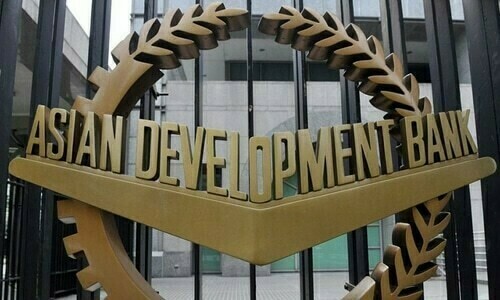ISLAMABAD: The Asian Development Bank (ADB) has approved a technical assistance project worth $86.2 million to develop a Sustainable Aviation Fuel (SAF) facility. This project is expected to significantly impact Pakistan by converting local waste resources into a high-value export product.
According to an ADB report, the proposed fuel plant is expected to bring substantial economic benefits, enabling the production of a new, environmentally friendly fuel product that can be traded globally.
The plant will convert waste resources into high-value SAF, aligning with climate initiatives by reducing greenhouse gas emissions. Additionally, the project will create skilled jobs for Pakistani engineers through technology transfer and training, and it will help formalise and economically improve the existing illegal gutter oil market, positioning Pakistan as a key player in the global SAF industry.
According to the International Air Transport Association, sustainable aviation fuel will contribute significantly, accounting for over 65 per cent of the industry’s reduction target. It has been projected that the SAF market will expand to 407 million tonnes by 2050.
The facility will be developed by Bio Tech Energy (BTE), which owns and operates an existing bio-diesel refinery in Sheikhupura that started commercial operation in 2016 and is a second-generation multi-feedstock refinery with a production capacity of 45 kiloton per annum (KTPA) producing biodiesel, with all output sold in EU markets. The biodiesel refinery plant utilises a waste-based feedstock that includes used cooking oil, poultry feather acid oil, and soap stock acid oil. BTE is the leading bio-diesel supplier in Pakistan and the only large-scale producer in the region.
The project will be developed on a brownfield site adjacent to the existing biodiesel operations and will share some key infrastructure at the current site. As part of its expansion plan, BTE is developing a SAF production facility with a capacity of 200 KTPA, with 85pc of the output being SAF and the remaining 15pc of bio-naphtha. The feedstock for the SAF production will be similar to the existing biodiesel refinery.
The project aims to ramp up feedstock collection up to 260,000 tonnes, estimated to be approximately 20pc of the country’s total collectable feedstock. This will be achieved by expanding collection points in major cities including Karachi, Peshawar, and Islamabad, and increasing collection quantities from established sources.
Published in Dawn, November 10th, 2024













































Dear visitor, the comments section is undergoing an overhaul and will return soon.